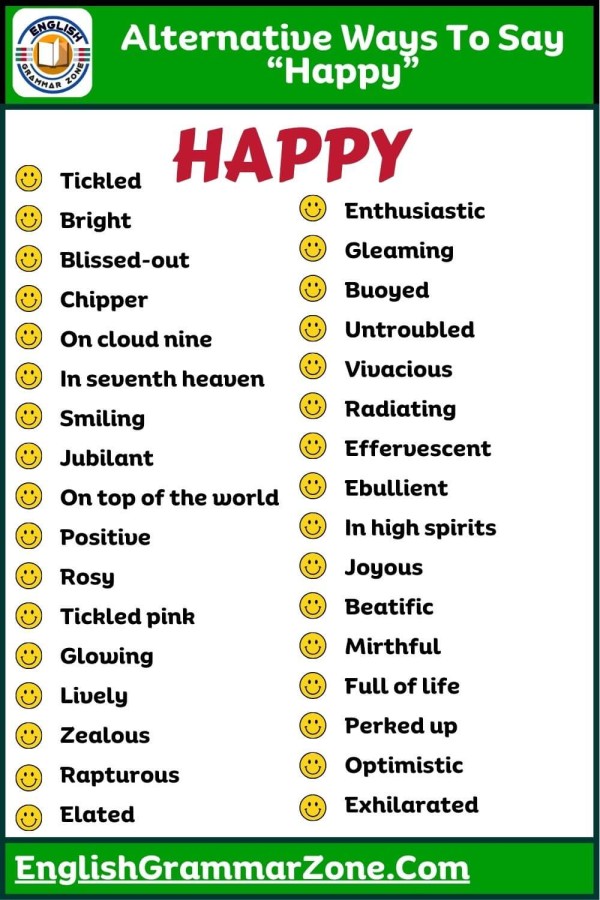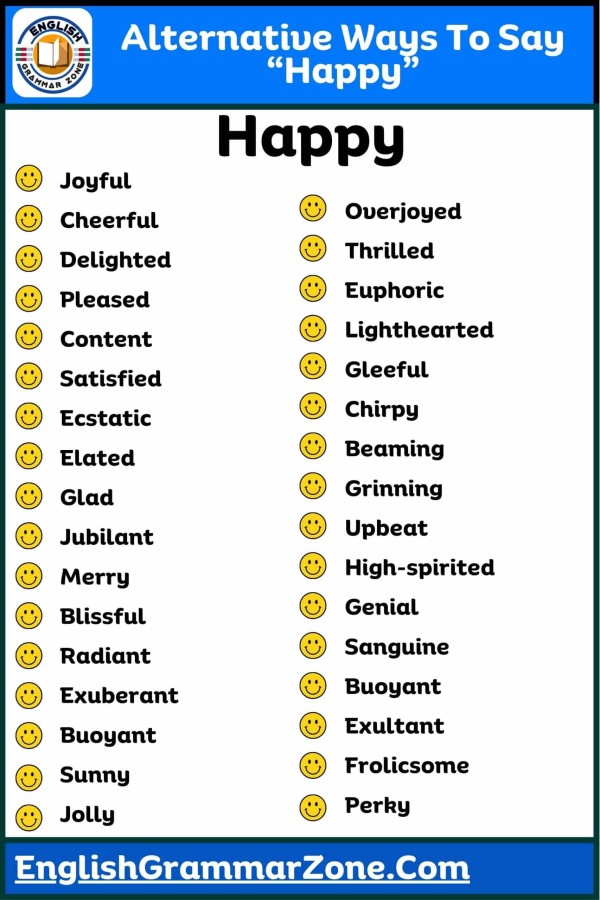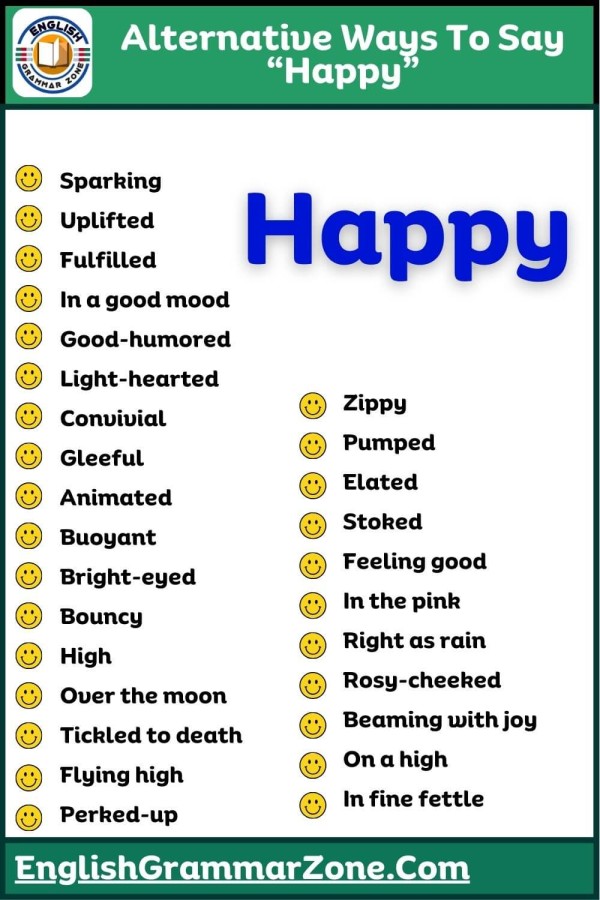100 Different Ways To Say Happy In English
'Networking in English'用英语进行商务社交 #生活技巧# #职场沟通技巧# #商务英语#
We all love to express joy and positivity in different ways. The word “happy” is a go-to for spreading good vibes, but sometimes we might want to switch it up and use a more unique or fitting word to match the situation. Whether you’re wishing someone a cheerful birthday, congratulating a friend, or simply sharing good news, knowing different ways to say happy can make your expression feel more personal and heartfelt. By learning various alternatives to “happy,” you can add variety and creativity to your conversations and make your interactions more interesting. In this article, we will explore some fantastic alternatives to the word “happy” and show you how to use them naturally in everyday language.
Alternative Ways To Say
“Happy”
Joyful Cheerful Delighted Pleased Content Satisfied Ecstatic Elated Glad Jubilant Merry Blissful Radiant Exuberant Buoyant Sunny Jolly Overjoyed Thrilled Euphoric Lighthearted Gleeful Chirpy Beaming Grinning Upbeat High-spirited Genial 
Alternative Ways To Say Happy

Alternative Ways To Say Happy

Frequently Asked Questions
1. What are some common alternatives to “happy”?
If you’re looking to express happiness in a different way, there are plenty of options. Some of the most popular alternatives to “happy” include:
Joyful: This word often expresses a sense of deep happiness and delight. It’s commonly used during celebrations or moments of great happiness. Cheerful: Perfect for someone who is always smiling and radiating positivity, “cheerful” conveys a light-hearted, bubbly feeling. Content: If someone is at peace with what they have or where they are in life, they might feel content. It implies a sense of satisfaction. Elated: When someone is extremely happy or excited, “elated” is a great alternative. It emphasizes a more intense level of happiness. Delighted: A polite and positive way to say happy, especially when you’re pleased about something specific. Pleased: A word used to describe happiness about a particular outcome, like being pleased with someone’s success or a job well done.2. Can I use “happy” and “joyful” interchangeably?
While both words express happiness, “joyful” usually implies a more intense or pure form of happiness. “Happy” is a more general term, and it can be used in a wider range of situations. “Joyful,” on the other hand, is often used to describe someone who is radiating pure happiness, especially during celebrations or big events.
For example, you would say, “I feel happy about my promotion,” but “I feel joyful on my wedding day.” The two words are similar but carry different emotional weight.
3. Are there other ways to say “happy” for different occasions?
Yes, absolutely! Depending on the situation, there are many other ways to express happiness. Here are some examples:
For birthdays or celebrations: “Have a fantastic day,” “Wishing you a wonderful birthday,” or “May your day be filled with joy!” For someone receiving good news: “I’m thrilled for you,” “How exciting,” or “This is such wonderful news!” For someone achieving something: “You must be so proud,” “That’s amazing,” or “I’m so excited for you.”These phrases add variety and emotion to your communication, depending on the circumstances.
4. Can I use “happy” and “content” to describe the same feeling?
While both words express positive feelings, “content” refers to a sense of peace and satisfaction rather than excitement or elation. If someone feels content, it means they are comfortable and satisfied with what they have. “Happy,” on the other hand, is a broader term that can express both satisfaction and excitement.
For example, someone might feel content with their quiet life, but they would feel happy on their birthday or at a party. So, while they both describe happiness, they convey different emotional states.
5. What is a more formal way to express happiness?
If you’re in a formal setting, you might want to use words like “pleased” or “delighted” instead of “happy.” These alternatives sound more polite and respectful, which can be especially useful in professional environments or when addressing someone you don’t know well.
For instance, instead of saying, “I’m happy to meet you,” you could say, “I’m delighted to meet you.” It’s a more refined way to express your feelings.
网址:100 Different Ways To Say Happy In English https://klqsh.com/news/view/172589
相关内容
30 Different Ways to Say Hello!How to Say Good Morning in Chinese: Formal and Informal Ways
How to say Good Morning in Chinese? 早上好 zǎo shàng hǎo
Another Word for BUT: 16 Alternative Ways to Say BUT with Examples
享受生活乐趣的50个方式(50 Ways to enjoy life).doc
10 Ways to Get Help in Windows 11
What is another word for Different?
How to get help in Windows
How to Change Taskbar Color in Windows 10: Step
4 Ways To Turn On Or Off Bluetooth In Windows 11

